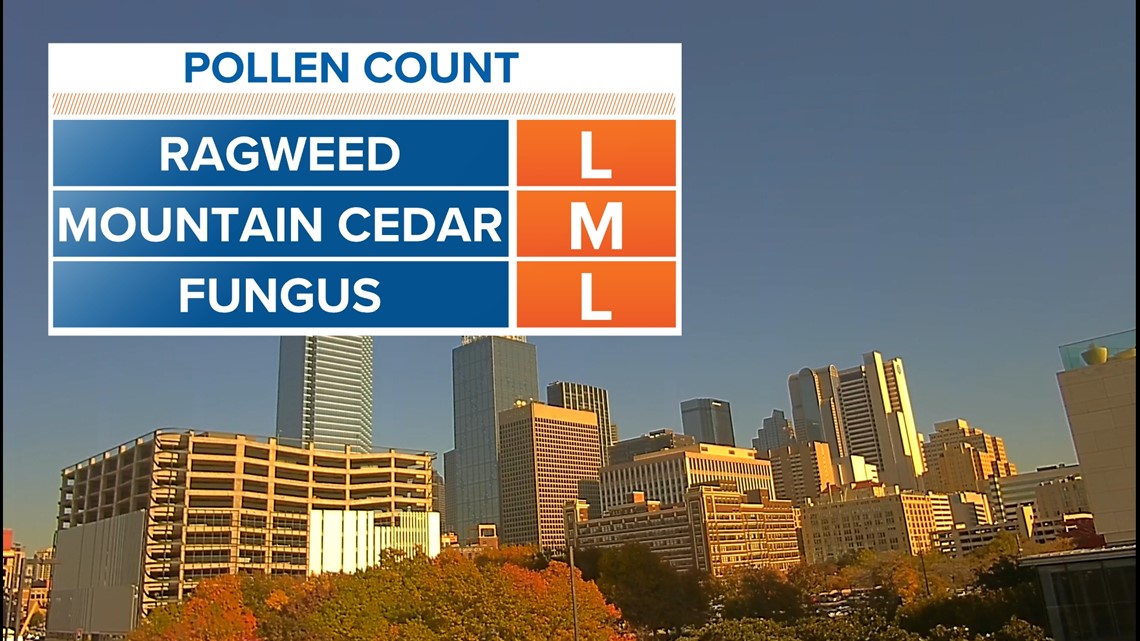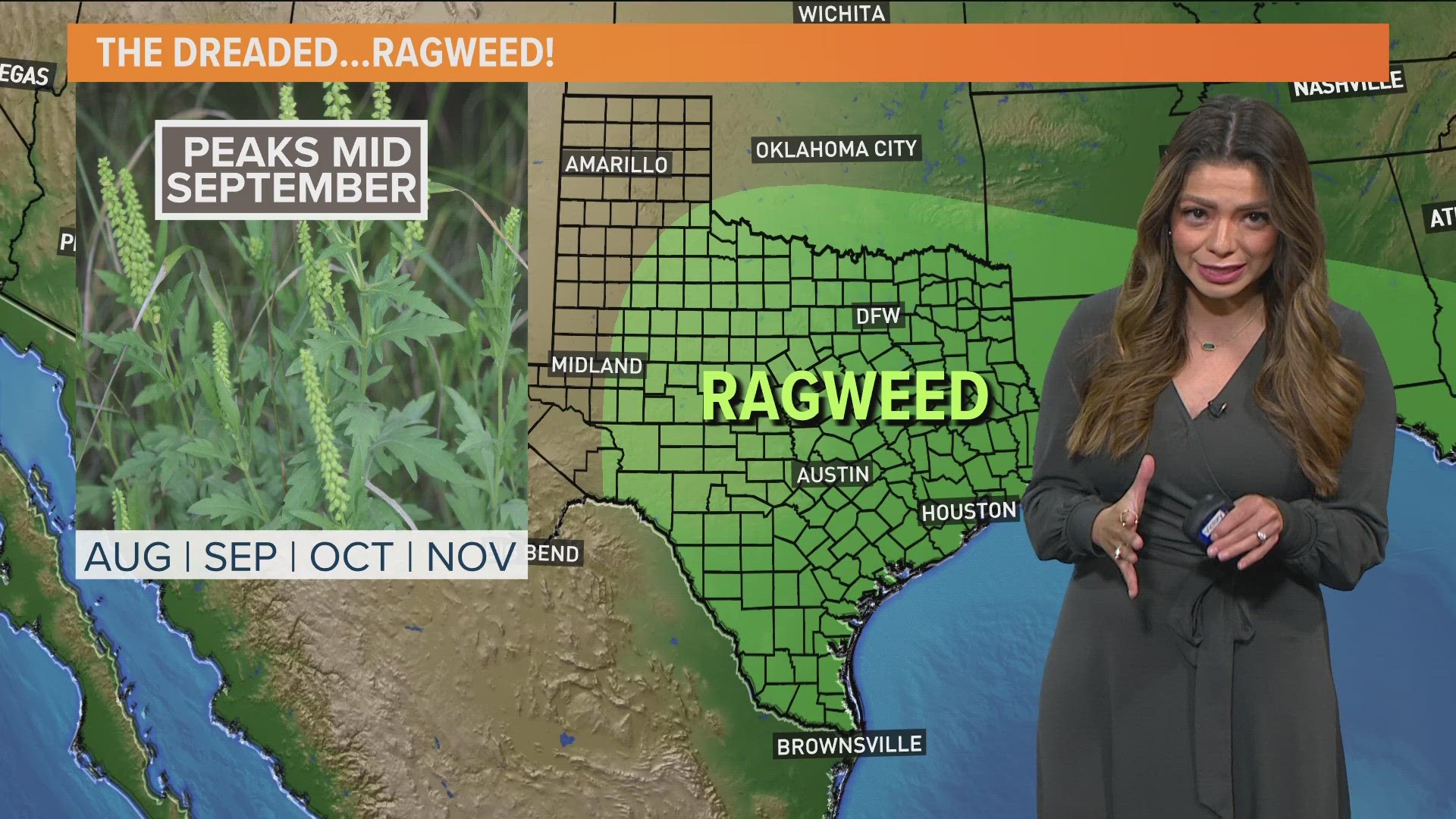DALLAS — Allergy season never really goes away in North Texas. The allergens over the weekend were ragweed and mountain cedar, but one of those will likely start going away.
The good news? The area's first freeze generally marks the end of ragweed season. Common ragweed is drought-tolerant which is why it is around through late summer and fall. However, ragweed is killed by frost.


DFW officially reported the first freeze of the season Monday morning. Many of the surrounding areas also saw a freeze to start the week. If you remember, this is not the first cold snap of the season. Almost all locations saw a freeze Oct. 31- Nov. 1, with the exception of DFW Airport, which is the official record-keeping location for North Texas weather. Now that every location has reported a freeze, it is a good indication that ragweed pollen season is coming to a close.
Be patient - it should happen in the next few days.
75% of people with plant allergies are sensitive to ragweed. Just one plant can release over one billion grains of pollen. The pollen floats around most in the morning. Anytime we have a breezy day between August to November, you can bet ragweed pollen is being thrown around. Ragweed season does not end until our first freeze which is, on average, Nov. 22.
Mountain Cedar is here....for awhile
Mountain Cedar is a well-know allergen that impacts much of North and Central Texas. Mountain Cedar trees are most common in Central Texas, but some of our western counties also grow mountain cedar trees. The pollen that is released is known to cause big issues with itchy, watery eyes, runny nose and itchy skin. Some even experience "Cedar Fever." Generally, mountain cedar pollen season runs from late November through February.
Any time we have a strong and dry south, southwest or west wind during mountain cedar pollen season, it tends to shake the trees and transport the pollen much more effectively. A dry front is currently to blame for the shift and increase in wind. This time of the year, the only thing that helps lower pollen count is rain.
As of now, rain is in the forecast Thursday. This should help temporarily lower pollen count.
Beware, Mountain Cedar season is far from over. It peaks January-February and ends by March.



